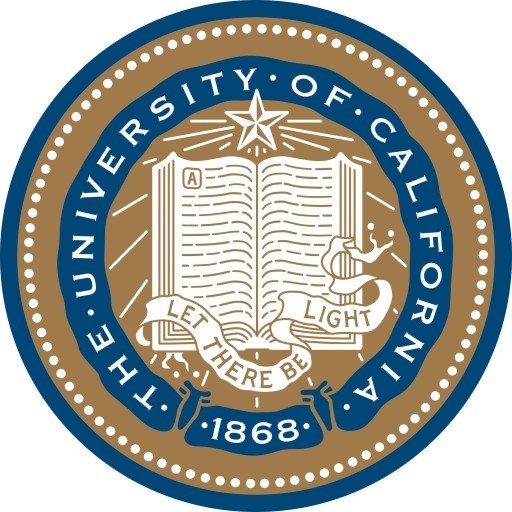Photos of university / #ucsc
The Ecology and Evolutionary Biology (EEB, courses BIOE) Graduate Program at UCSC reflects the remarkable local and global diversity of species and environments studied by the EEB faculty and students. The vision of the EEB graduate program is to provide a nurturing, creative, and intellectual environment conducive to the development of world-class scientists. The small size of the EEB graduate program encourages close working relations between students and faculty in an informal atmosphere advantageous to rapid learning and professional growth. Interdisciplinary collaborations with oceanographers, geologists, mathematicians, environmental and conservation biologists, toxicologists, and others enable students to explore the conceptual connections between related fields as they acquire mastery in their areas of specialization.
The graduate program in Ecology and Evolutionary Biology (EEB) at UC Santa Cruz is one of the premier EEB programs in the country. EEB-UCSC graduate students regularly win prestigious awards for their presentations at international meetings and publish their work in the best journals of their fields. In addition to taking advantage of local field sites and state-of-the-art departmental laboratories, more than two-thirds of the EEB faculty also participate in field studies throughout the world, especially in Africa, Latin America, Antarctica, and around the Pacific Rim.
Research in EEB comprises four core tracks
- Ecology
- Evolutionary biology
- Physiology
- Behavior
Core Courses:
- BIOE 200A, Scientific Skills
- BIOE 200B, Advanced Organismal Biology
- BIOE 279, Evolutionary Ecology
- BIOE 293, Readings in Ecology and Evolution (orequivalent)
- BIOE 294, Ecology, Evolutionary Biology Seminar (taken each quarter when in residence)
- BIOE 295, Advanced Ecology and Evolutionary Biology Seminar (may substitute for BIOE 293)
M.A. students must take BIOE 200A, BIOE 200B, BIOE 279, and two quarters of BIOE 293 (or one quarter of 293 and one quarter of 295) within their first two years. Biology 281, 294, and 297/299 (Independent Study) must be taken every quarter the student is in residence. All students must be enrolled in at least 15 credits per quarter, unless on approved part-time, absentia or leave of absence status. The minimum number of credits for the master’s degree is 35 of which no more than 15 credits from upper-division undergraduate courses may be used as part the student’s coursework.
Thirty days after submitting the master’s thesis to a thesis reading committee, the student defends the thesis to the committee, followed by a public seminar.
Requirements for the Ecology and Evolutionary Biology Designated Emphasis
To receive a parenthetical notation in Ecology and Evolutionary Biology (hereafter EEB), graduate students must complete the following requirements, in addition to the degree requirements for the doctorate in their home department:
- Take the following EEB core courses (required for all EEB graduate students):
BIOE 279 Evolutionary Ecology (5 credits), BIOE 200A Scientific Skills (5 credits), BIOE 200B Advanced Organismal Biology (5 credits)
- Attend EEB department seminars (enroll in BIOE 294, 2 credits) for one quarter
- Attend a lab group seminar course (enroll in BIOE 281, 2/5 credits) for one quarter
- Take at least two courses from any other graduate or appropriate upper-division courses in biology, for example:
BIOE 293 Readings in Ecology and Evolution (2 credits) BIOE 295 Special Advanced Topics in Ecology and Evolution (2 credits) BIOE 272 Exercise Physiology (5 credits) BIOE 233 Exercise Physiology (5 credits) BIOE 248A Quantitative Ecology (5 credits) BIOE 252 Community Ecology (5 credits) BIOE 208 Marine Ecology (5 credits) BIOE 245 Plant Ecology (5 credits) BIOE 274 Evolutionary Game Theory (5 credits) BIOE 286 Experimental Design and Data Analysis (5 credits)
- In all, students will be expected to complete at least 20 credits of EEB coursework. Courses taken to fulfill graduate requirements within the home department will not count toward the Designated Emphasis requirements.
- Have a designated graduate adviser from among the faculty of the EEB department, who commits to serve on the qualifying exam committee and on the Ph.D. dissertation reading committee.
Requirements
- Transcripts. You may upload a scanned copy of your unofficial transcripts to your online application, or send official copies to the Graduate Application Processing address
- Statement of Purpose. Recommended length is a concise 2-4 pages, single-spaced.
- The Personal History Statement is required of all applicants.This statement will be used in conjunction with your application for graduate admission and financial support. Please note that the Personal History Statement should not duplicate the Statement of Purpose.
- A résumé is required for some applications and optional for others.
- All recommendation letters are required to be submitted electronically through the online application. You must register a minimum of three recommenders, and as many as five, via the Recommendations page of the online application.
- The application fee for the 2016-17 academic year is $105 for domestic applicants and $125 for international applicants. This fee can be paid by credit card or e-check (the e-check option is only available if you have a U.S. bank account).
- Official GRE scores must be sent from the Educational Testing Service (ETS) to UC Santa Cruz, School Code 4860 (no department code necessary). Official scores must be received prior to the application deadline.
- If you are a non-native English speaker you will be required to take an English language competency exam. UC Santa Cruz accepts the TOEFL or IELTS test. Official scores must also be sent from the testing service to UC Santa Cruz, School Code 4860
Scholarships
- Regents Fellowships. A limited number of these fellowships are awarded to first-year graduate students in master's and doctoral programs. These awards provide a stipend and/or payment of university fees except non-resident tuition.
- Global Education

